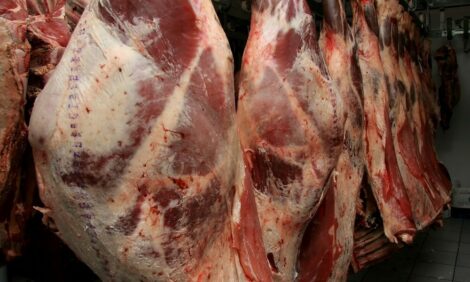



Feed to Be Assessed As Green House Gas Solution
UK - The effects of dietary changes and feed additives on beef cattle emissions is being investigated in a new three-year research project.EBLEX has teamed up with Scotland’s Rural College, SRUC, in Edinburgh, to look at how changes to feeding regimes can improve efficiency and drive business profitability, while reducing greenhouse gas (GHG) emissions produced as a by-product of rumination.
Steers will be finished on either concentrate based or forage based diets, each with two different feed additives, such as vegetable oils.
The role of the rumen microbial population in the responses will be measured to look at how rumen function changes according to diet, additive and breed. Results will be related to the greenhouse gas emissions and feed efficiency, as well as long-term effects of feed additives.
“The animals will be moved into specialist chambers for short periods of time where their emissions can be captured,” said Dr Mary Vickers, senior livestock scientist with EBLEX.
“In addition, when they are accessing rations from group pens, special plastic hoods over the feeding stations can measure the specific emissions at those times. Measuring emissions, rumen function, feed intake and growth rates can help us build a picture of any effect the additives have.
“The ultimate aim is to ensure the cattle are having their full nutritional needs met in an efficient, cost effective way while minimising the emissions produced.”
In addition, carcase quality, meat quality and shelf life will also be recorded to ensure quality of the final product is maintained. The outcomes of this project will provide producers with independent advice about the efficacy of two feed additives fed in a range of commercial conditions.
| TheCattleSite News Desk | Read more EBLEX News here |


